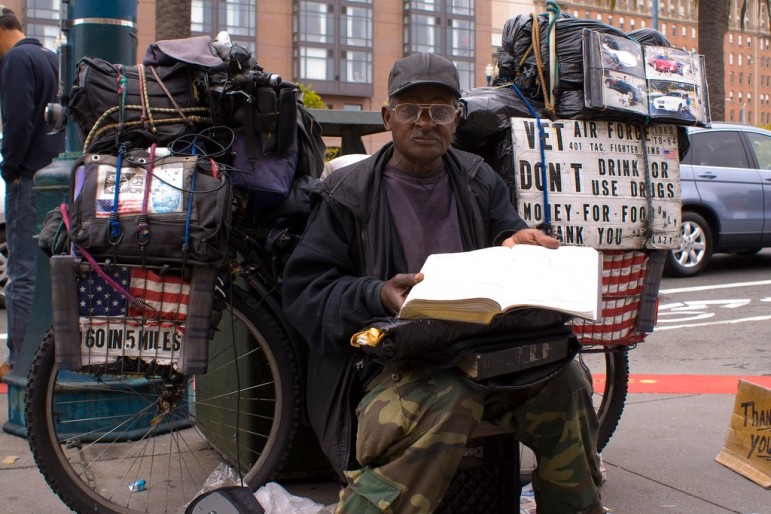
November 11, 2015; WBUR-FM (Boston NPR)
Media and public attention often falls on the most visible issues with veterans—mental health problems, homelessness, and unemployment. Many cities have taken the pledge to end veteran homelessness and have tried to different degrees to tackle the variety of other issues. However, one Massachusetts nonprofit is arguing that to attend to the complexity of issues facing veterans, one must address one of the feeder systems: insufficient access to legal aid. According to Veteran’s Legal Services, (VLS) legal assistance ranks higher than housing in those unmet needs.
VLS’ clients may have a variety of family, access to mental health and health services, benefits, and other legal issues that one would not necessarily see as causal to homelessness, but they can have disastrous effects in combination. According to Eve Elliot, a staff attorney at the nonprofit, “I think a lot of the veteran clients get into situations where they fall behind in their child support, and child support arrears is one of the leading causes of veteran homelessness.”
Traditionally veterans haven’t been a group that have been prioritized for receiving legal assistance. […] The push to end veterans homelessness has certainly helped us in explaining why our legal services are necessary.
Sign up for our free newsletters
Subscribe to NPQ's newsletters to have our top stories delivered directly to your inbox.
By signing up, you agree to our privacy policy and terms of use, and to receive messages from NPQ and our partners.
VLS makes good use of pro bono attorneys in its practice. “I think in some ways it’s hard for an attorney whose background is in corporate matters, to be willing to go into family and probate court or go into housing court, but if they have that willingness to learn then they’re a huge asset to us,” she said.
While the nonprofit serves five counties in the Boston area, there is a call for its service elsewhere in the state. “We don’t cover Worcester, we don’t cover Western Mass., and we’re always getting phone calls, because, unfortunately, there are no legal services agencies that cover those areas, which is one of the reasons we’ve worked on expanding our volunteer attorney program so we can cover more of those cases,” said Elliot.
VLS and other legal aid organizations like it may help tackle the nationwide vet homelessness issue indirectly, but to really help veterans will take a more collaborative effort. For one thing, organizations and the public must understand what veterans need in the first place. In large part, the public seems woefully unaware of the hardships and the struggles of military and post-military life. In a 2011 Pew Research Center survey, 84 percent of military personnel who participated felt that “Americans have little awareness of the problems faced by those in the military.”—Shafaq Hasan













